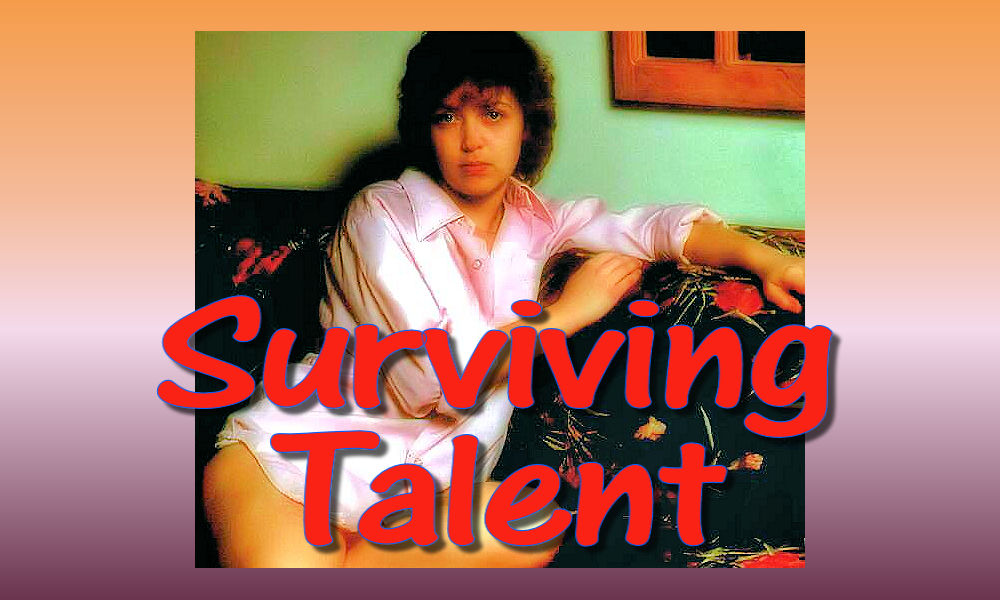Surviving Talent — Talent is often hidden, having been repressed for fear of standing forth. There are ways to re-engage with the talent just beneath the surface.

Psst!! Hey!!!
** Want more great writing designed to help YOU to shift your behaviour?
** Want to learn how to find, build or deepen your principal relationship?
** Want to know more about Zen living and being?
Check out Wayne’s books! (amazon link)
Or, check them out right on our site.
Talent was not rare; the ability to survive having it was.
Neal Stephenson, “Quicksilver”
I really don’t think the context for this quote is all that important, but the line comes from one of the protagonists observing Isaac Newton as a child. Other kids attempt first to mock him, then to bully him, then to beat him up. (None of which was successful in the least.)
The narrator is commenting about the nature of social pressure, as it is exerted against those who stand out.
Let’s see what we can see!
Talent was (is) not rare
So, September 2024 was the 40th anniversary of my beginning my training as a psychotherapist. (He says that with a small sigh and shake of head…) Without boring you, here’s how that goes: you’re in class a lot, you work with 10 clients a week, and you’re supervised.
Back then, that meant being observed through two-way-glass or video. Twice a year, there’s a written evaluation, again two-way. You answer essay questions about who you are and how you’re doing, and your supervisor does the same.
In my second year, my supervisor wrote, in her first evaluation, “Wayne often has much higher expectations for his clients than they have,” as if this was a problem. In later discussion, she said she thought this approach might lead to disappointment on my part, and too much pressure for my clients.
At the end of second year, she wrote, “Wayne continues to have much higher expectations for his clients, and he is almost always right.” I just smiled. I had realized I could see my clients’ talents and potential, and I was not about to ignore it.

Talent is not rare. For most, it’s simply been buried under years of neglect and dis-use. It’s been put down by significant adults during childhood, beaten out of them through criticism and threat, and finally given up on as a pipe dream.
Example: Through grade 3, I was a straight “A” student. One day, in grade 4, I was walking home with a hulking dude named Danny.
Here’s an interesting tidbit: he carried a switchblade knife in his boot, and took it out once in class, when I was trying to strip a wire. The teacher said, “Thank you for sharing Danny, now put that back in your boot.”
And hey! We all lived!
Anyway, Danny lived across the street, and we walked home together a lot.
One day, he said, “You know, I don’t have a single friend that gets good grades.” Now, there was no threat—but to my 9‑year-old mind, it sounded like, “If you want to be my friend, You’d better “dumb down.” So I did—I became a “C” student for a year or so. As simple as that.
Imagine what happens when real pressure is exerted by adults
Danny is a benign example. Here’s another, with a bit more pizazz.
There once was a woman we knew, who basically, at 28, was stumbling along, putting in time. She was in a dead end job, failed marriage, failing relationship, “numb” sexually, unhappy and shut down.
She started spending time with Darbella and me. One day, she described her “growing up” environment.

She told us that was continually painting and drawing. Mom and dad wanted her to be a doctor. Quoth they: “We support the arts–we don’t make art!”
Her parents, both doctors, repeatedly took away her art supplies. She’d find ways to draw. Finally, though, she just gave up. She rebelled, by dropping out of school, etc.
She showed me a photo of a painting she’d done, on a whim, with no training, and it was stunning.
After a while hanging out with us and hearing “encouraging words,” she went back to school, and started painting. We lost contact with her, but I don’t think she ultimately stuck with it. She declared “game over” in her 30s, because,
Talent was not rare; the ability to survive having it was.
Why?
Because surviving while having talent is tricky
Our culture, probably forever, and especially in the last several decades, prizes “fitting in” while blaming others over visible expressions of talent. Oh, we’re willing to read about talented people, and we give lip service to wanting our “kids” to be talented, but only if they don’t rock the boat, and still fit in.
Again and again, I see parents force feeding their kids this “party line”—
fit in, don’t make waves, be reasonable, don’t have “unacceptable emotions,” etc.
Or, my personal favourite, telling their kids to excel, while refusing to bring forth their own talent and passion. “Do as I say, not as I do” is the motto.
And the talented who are also “out of the closet of repression” shake their heads and wish for a “better day.”
We’ve all been conditioned to dial down our passion and our creativity, to refuse to “go for it, damn the consequences,” and the world is poorer because of it.
I look at people, and see their potential—their blocked or poorly used talent, which to my eyes,is just under the surface. And I see their posture, and hear the words of the beaten down, who have forgotten what lies right there.
I attempt to shine a bit of light, hold up a mirror, to help others open the floodgates and get a glimmer of what’s available. Some of them get it, embrace it, and start living their talent, their passion.
Mostly, I watch this curious phenomenon, like what our artist friend, in the illustration above, chose:
They open themselves up just a bit, stick a toe in, then swim in the creative flow, sigh with relief. And then they tighten, re-play the old, old story, and things go back to normal.
They do as they were told, except as they get older and become parents, they are now doing the telling–the restricting.
Talent is hard to survive.
Unless you choose to let the blocked, inhibited, shut down version of you “die,” unless you choose to face the fear, the bullying, the restrictions head on, and step through.
Then you discover that what was holding you back are your stories, and your stories are as insubstantial as smoke.
And there you are, as you are, and acting in a new, clearer and more “in the flow” way, in your relationships, as you produce your magic, has the power to change everything.
But only if you choose not just to survive your talent, but to embrace it.





